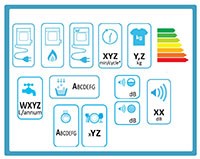The Preparatory Studies looking at wet products have now produced several reports and work has included a consumer behaviour study for each category conducted by the University of Bonn.
The dishwasher survey has suggested that consumers who live in large households are more likely to have a dishwasher; that they do consider energy and water consumption when buying; but that there is confusion over whether items should be pre-cleaned or not.
The washing machine survey found that consumers are washing less often than when the last survey was conducted (possibly because drum size has increased over the years); they wash at lower temperatures; but they (mistakenly) associate shorter programmes with energy efficiency.
For washer dryers the findings are that most consumers would not use the drying function in the summer; they were unwilling to wait more than three hours for a programme to finish; and they tended to under-load the machine.
However, suggestions from some stakeholders that the survey demonstrated a need for even more information on the energy label were not met with great enthusiasm, while proposals to impose restrictions on design (such as limiting drum size) were deemed to be counter-productive and/or anti-competitive.
Questions are being asked about the desirability of prolonging the life of appliances where technological innovation means that newer models use less energy or water, or where new restrictions on e.g. chemicals mean that it would be sensible to take them out of the supply chain altogether.
And the debate about how far it is possible to make electrical appliances easier to repair and disassemble without compromising safety are set to continue.

